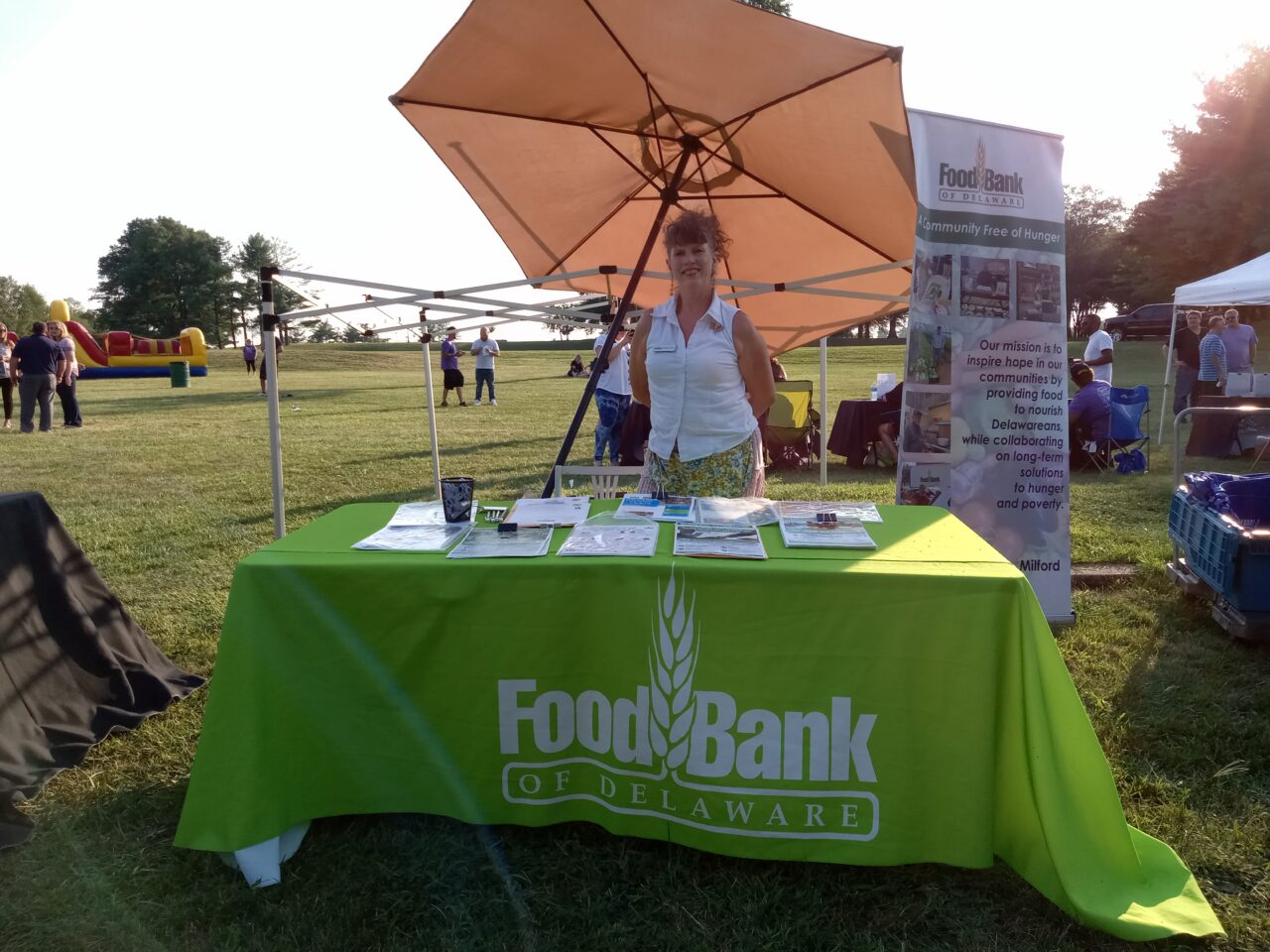34 Delawareans enroll in the new Economic Mobility Pilot Program
October 12, 2022
Education, training, and connection offer participants hope for a brighter future
We know that many of the neighbors we serve go to work every day, yet they aren’t earning enough to house and feed their families. Many of them — due to lack of technology, training, education, or skills – may feel stuck, with little to no hope of a brighter future.
Because food insecurity is a much more complex issue than a lack of adequate food, Feeding America is addressing the root causes related to this problem. In an effort to learn more and provide more efficient services, Feeding America awarded the Food Bank of Delaware a grant in October 2021 to explore and deliver services to identify and address root causes of food insecurity. The plan is to examine employment situations and help people find better employment through workforce development strategies as a means to positively affect neighbors’ food insecurity.
Six months after the FBD launched the Economic Mobility Pilot Program; coordinator Barbara Boese recruited 34 participants who are now taking steps to improve their lives by seeking employment, becoming better employed, or upskilling for a career. Eight of those participants are already making strides toward improved employment. For example, one woman was able to enroll in a Delaware State University program that will support her goal of becoming a teacher, and she’s receiving financial support from the state Division of Vocational Rehabilitation. Others have landed jobs or enrolled in training programs, such as a man with auto body and mechanical skills who connected to a vo-tech school where he will be a part-time instructor in that field. Another neighbor decided to re-certify to work as a security guard, and another is completing GED classes.
To recruit these participants and others, Boese hosted five focus groups, and also connected with neighbors at our mobile pantry sites, job fairs, and placed flyers at public libraries – all statewide. Most of the responses came through an email blast with the Economic Mobility flyer and also through registration on the website at https://www.fbd.org/economic-mobility/
“This is about people, their personal journeys, and making meaningful steps forward,” she said, noting that response to the program came from all three counties and included five unhoused people. Boese is developing partnerships with training programs as she triages and develops strategic plans with neighbors to meet their individual needs. “I’m still working through responses. Intervention takes time,” she explained. “It’s a person-centered coaching service where the neighbor’s career goals drive the case plan and action steps.”
Meanwhile, she has connected people to resources and services. For example, one neighbor obtained her business license. She is embarking on professional skills to build her brand and find startup capital, while another neighbor is re-certifying as a security guard.
Boese explains most participants identified a financial goal and were then referred to the free Stand By Me program where they receive individualized financial coaching skills from Food Bank of Delaware financial coaches to learn how to effectively use their money.
Yet, Boese discovered some unforeseen challenges. “Most had little access to the internet or technology, or computer literacy,” she said.
While this process grant concludes in December, Boese believes it will move forward to provide more coaching. “I guess we’ll see. This program is exploratory, how to address the root causes of food insecurity from the premise of workforce development. Eventually, we will take the lessons learned, and Feeding America will compile a playbook for Food Banks across the country to begin to address the root causes of food insecurity in their region or state.”
Visit www.fbd.org to learn more about services offered by the Food Bank of Delaware.










